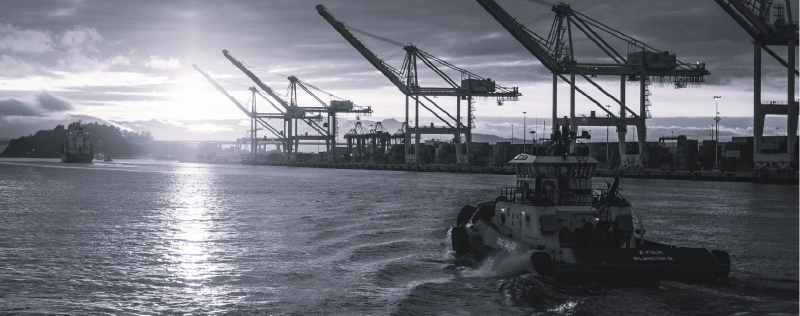Deep-Sea Mining: What It Means for Marine and Energy Supply Chains
Industry Insights • 2 min read • July 30, 2025 • Written by: Amelia Inskipp

The conversation around deep-sea mining has intensified. With global demand for minerals like cobalt, nickel, and rare earths growing, particularly for clean energy technologies and electric vehicles, the ocean has become a new boundary. But it’s one that’s raising serious questions.
In July 2025, during the latest International Seabed Authority (ISA) negotiations, 37 countries and nearly a thousand scientists backed a suspension on commercial seabed mining. The main points made for the reason on the suspension were to slow down, or we will potentially do irreversible damage to an environment we barely understand.
This isn't just a political debate or an environmental one. For companies involved in marine infrastructure, energy development, and raw material supply chains, it’s a move that could change sourcing strategies for years to come.
Why the Suspension Is Gaining Ground
Much of the concern comes down to what we don’t know. Deep-sea ecosystems, where most of the mining interest lies, are some of the least explored on the planet. The minerals being targeted, such as polymetallic nodules and cobalt-rich crusts, are found thousands of metres below sea level, in fragile habitats that have taken millions of years to form.
People who are against deep-sea mining argue that disturbing these ecosystems through mining could release sediment plumes, create noise pollution, and destroy marine life that plays a role in global carbon cycles. Countries like the UK, France, and Germany have supported pausing any commercial extraction until there’s a stronger environmental framework in place. Groups like the Deep-Ocean Stewardship Initiative and Greenpeace have added pressure by pointing out the lack of long-term data and the unpredictability of the impacts.
The Divide Between Industry and Regulation
While governments and researchers push for caution, several private companies are already exploring how to mine the deep sea. The Metals Company, for example, is moving ahead with exploration under licences backed by countries like Nauru and Tonga. They’re operating under UNCLOS (the UN Convention on the Law of the Sea), which allows for provisional access while formal rules are still being written.
However, the ISA haven’t finalised the Mining Code that would govern these activities, and talks in July ended without agreement. That leaves a regulatory grey area, which isn’t great for investment confidence or long-term planning. It also complicates things for companies in the energy and infrastructure sectors that might be depending on those minerals in the years ahead.
What This Means for Supply Chains
For anyone working in supply chain management, especially in sectors like renewables and marine infrastructure, this uncertainty is hard to ignore. Minerals like nickel, manganese, and cobalt are critical to building wind turbines, electric vehicles, and storage systems. If deep-sea mining is delayed or restricted, those materials will need to come from elsewhere.
That puts more pressure back on land-based mining, which often brings its own risks, whether that’s political instability, environmental regulations, or ESG scrutiny. As a result, procurement strategies are shifting. Traceability is a priority, and so is supplier diversification.
Looking Ahead
A full suspension hasn’t been agreed upon yet, but the momentum is clearly moving in that direction. Countries with vast offshore zones, such as Japan and Norway, are now reconsidering their national approaches. The next ISA session, due later this year, could introduce more restrictions or formal delays. In the meantime, attention is shifting to alternatives.
At Storm Procurement, we’re working with clients across energy, marine, and infrastructure sectors to help them stay ahead of these changes. If you're reviewing your sourcing strategy or looking to build in more resilience, get in touch. We’d be happy to talk.
Related Articles

Industry Insights
The Future of Mining Machinery: Growth, Technology, and Procurement

Tips & Tricks
Mining - Solar Panels

Industry Insights
Why Warehousing Is Critical to a Smooth Supply Chain
Don't Miss Out On Our Updates
Sign up and Join Our Newsletter Today
